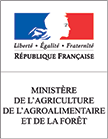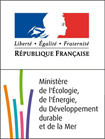There are major challenges to meet increased demand for food to feed a growing population, while at the same time reducing deforestation and forest degradation to tackle climate change, protect biodiversity and secure livelihoods of forest-dependent communities. Agriculture is estimated to be a direct driver for around 80% of deforestation worldwide.
Tackling this driver is key to achieving a reduction in deforestation and forest degradation (REDD) to avert dangerous levels of climate change. At the same time increased demand for food will either have to be met by making more land available for production or increase productivity of crop yields.
In order to achieve these objectives simultaneously, it is paramount to decouple economic growth and production of agricultural commodities from deforestation and forest degradation. This requires greater compatibility between rural development, commodity production and REDD+. REDD+ goes beyond reducing deforestation and forest degradation to include the role of sustainable management of forests, conservation and enhancement of forest carbon stocks. Redesigning fiscal incentives can enable such transition.
At present, agricultural subsidies are often a few orders of magnitude higher than funding for REDD+. Brazil and Indonesia combined for example provide over USD 40 billion in subsidies to palm oil, timber, soy and biofuel sectors between 2009-2012, which is more than a hundred times higher than the USD 346 million these countries received through REDD+. How can REDD+ funding support a redesign of rural and commodity incentives that is both conducive to stimulating agricultural production, economic growth, but not at the expense of continued forest loss?
This High-Level session will discuss practical options to redesign fiscal instruments to be more conducive to sustainable rural economic development as well as country approaches to make this happen.
Key questions addressed
- How can we envision change from business-as-usual in land use sectors, and how can all relevant stakeholders, including government ministries and private sector partners be brought along?
- Getting governments to work in a holistic manner takes enormous political leadership at the highest levels. What are the keys to success that can be applied in different national contexts and across different commodities?
- How can funding for REDD+ and other forms of climate finance be harnessed to redesign incentives that stimulate agricultural production and economic growth, but not at the expense of continued forest loss? Are the panelists aware of recent success stories?





































